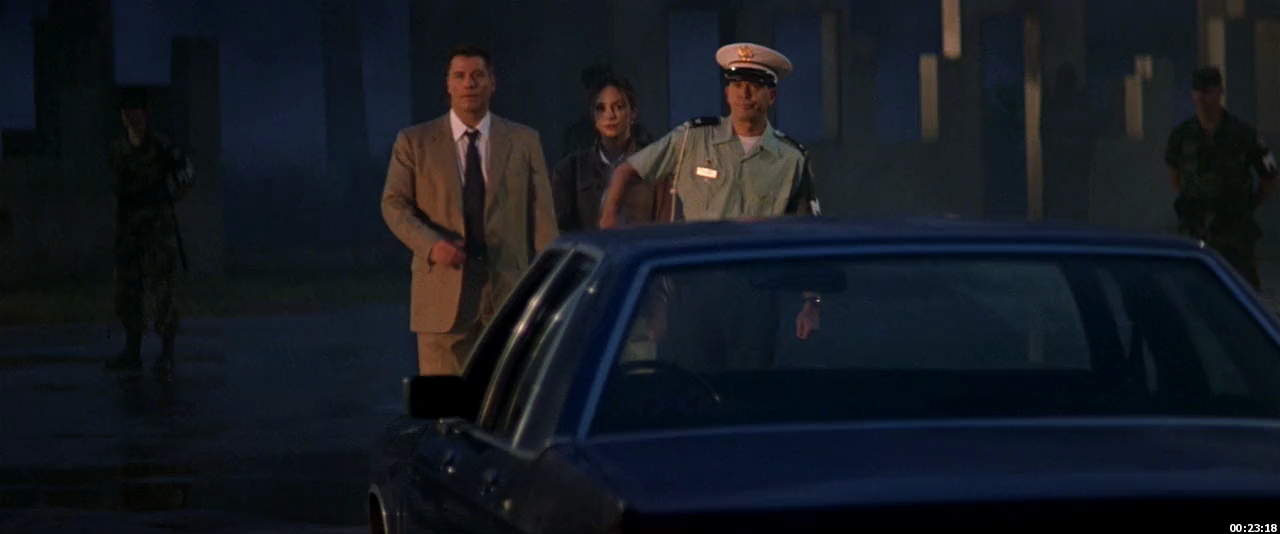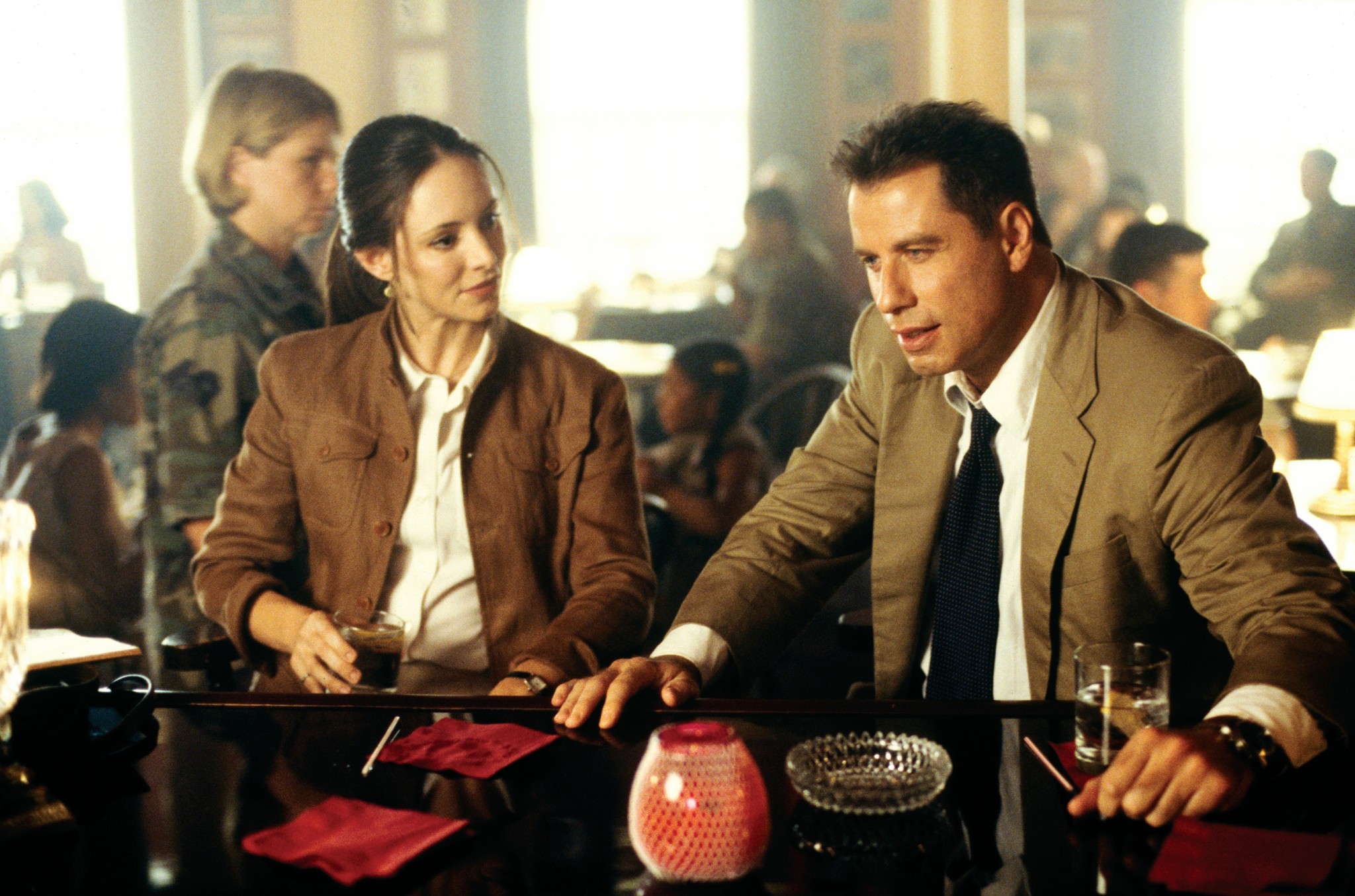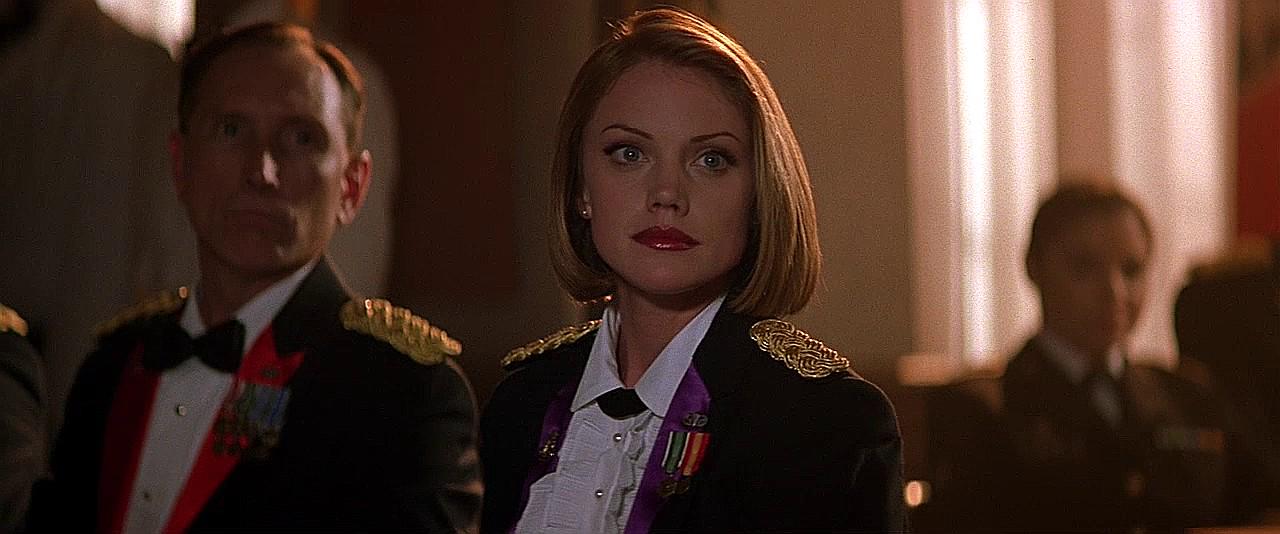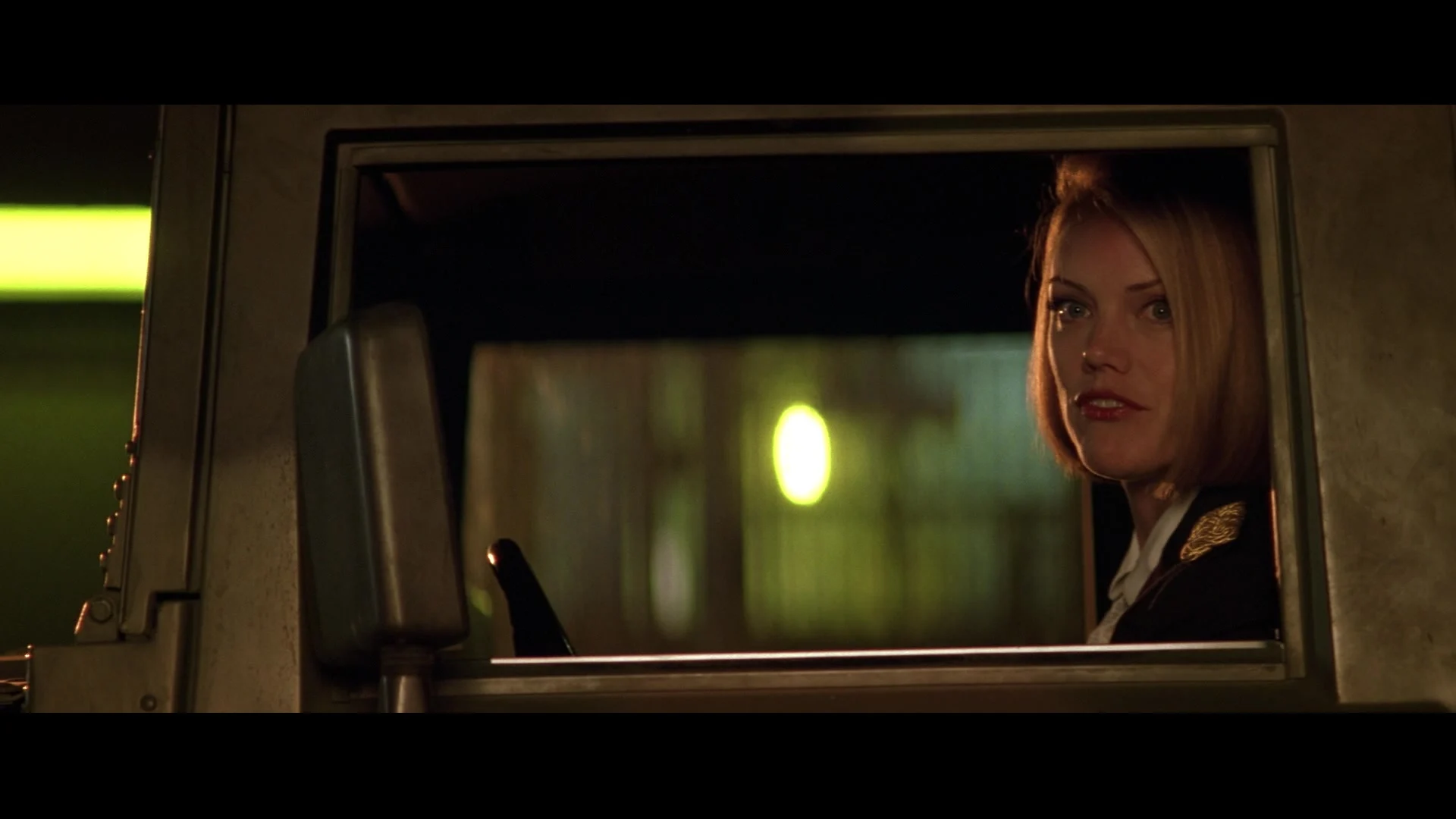The General’s Daughter (1999)

The General’s Daughter (1999), directed by Simon West, is a gripping psychological thriller based on Nelson DeMille’s best-selling novel. Starring John Travolta, Madeleine Stowe, and James Cromwell, the film delves into the murky world of military hierarchy, secrecy, and justice as it investigates a brutal murder that unveils disturbing truths about power and abuse within the armed forces.
The story begins with the shocking discovery of the lifeless body of Captain Elisabeth Campbell (Leslie Stefanson), the daughter of the highly respected General Joseph Campbell (James Cromwell). Her body is found on a military base in Georgia, staged in a grotesque and ritualistic manner. Army criminal investigators Paul Brenner (John Travolta) and Sarah Sunhill (Madeleine Stowe) are called in to solve the case. As they dig deeper, they uncover layers of deception, corruption, and buried trauma that challenge their notions of loyalty and justice.
Paul Brenner, played with charisma and grit by John Travolta, is a seasoned investigator known for his sharp wit and relentless determination. His dynamic with Sarah Sunhill, portrayed by Madeleine Stowe, provides an emotional anchor for the film, as their shared history and contrasting investigative styles add depth to their partnership. Together, they navigate a labyrinth of military protocol, resistance from high-ranking officials, and their own personal demons.
The investigation reveals that Elisabeth Campbell was a complex figure—brilliant, ambitious, and deeply troubled. Behind her poised exterior was a history of trauma that included a horrifying incident during her time at West Point, an event that was covered up to protect her father’s reputation. As Brenner and Sunhill piece together the evidence, they encounter a range of suspects and witnesses, including Colonel Robert Moore (James Woods), whose sardonic demeanor and proximity to Elisabeth raise suspicions, and General Campbell himself, whose stoic facade hides a man grappling with both personal loss and the weight of command.
The film’s themes are weighty and provocative, exploring issues such as sexual violence, the cost of loyalty, and the moral compromises made in the name of institutional integrity. Elisabeth’s story is a tragic reflection of systemic failures and the silencing of victims within hierarchical structures. Her death serves as a catalyst for exposing these issues, forcing characters to confront uncomfortable truths about themselves and the system they serve.
Simon West’s direction balances the procedural elements of the murder investigation with intense emotional and psychological drama. The film’s pacing is taut, with a series of twists and revelations that keep the audience engaged. The cinematography by Peter Menzies Jr. captures the stark contrast between the sprawling beauty of the military base and the dark undercurrents of the story, while Trevor Rabin’s haunting score underscores the film’s tension and poignancy.
The performances are a standout aspect of The General’s Daughter. John Travolta delivers a compelling turn as Paul Brenner, blending humor, determination, and vulnerability. Madeleine Stowe brings both strength and sensitivity to Sarah Sunhill, creating a character who is both a skilled professional and a compassionate human being. James Cromwell’s portrayal of General Campbell is layered and complex, capturing the conflict between a father’s grief and a soldier’s stoicism. James Woods, as Colonel Moore, provides a sharp, sardonic edge that adds to the film’s tension.
While the film received mixed reviews from critics, with some pointing to its heavy-handed approach to its themes and melodramatic moments, it was praised for its strong performances and thought-provoking narrative. The story’s exploration of systemic flaws and the pursuit of truth resonated with audiences, making it a memorable entry in the genre of military thrillers.
The General’s Daughter is a tense and thought-provoking film that combines mystery, drama, and social commentary. It challenges viewers to confront uncomfortable questions about authority, justice, and the human cost of protecting institutional power. With its strong cast, gripping story, and emotional depth, it remains a powerful exploration of the darker corners of military life and the sacrifices made in the name of loyalty and honor.












